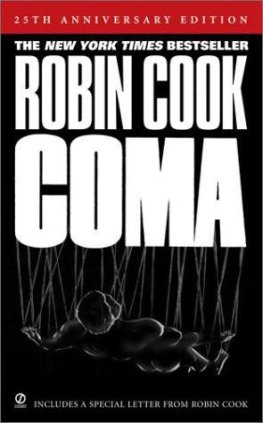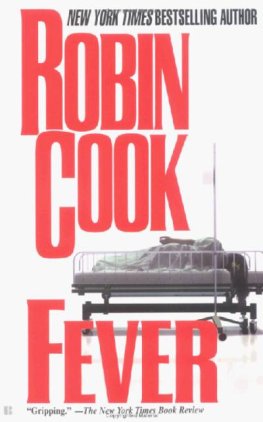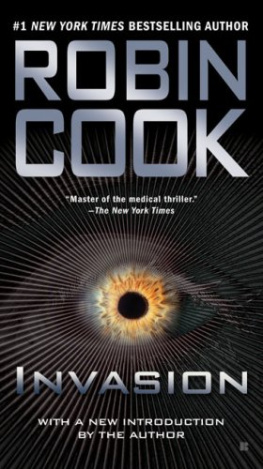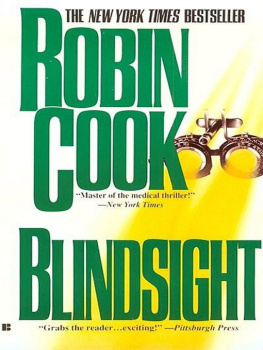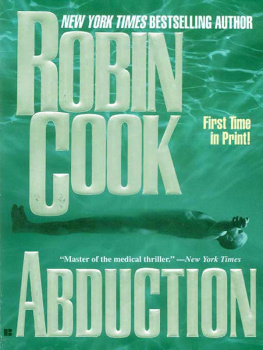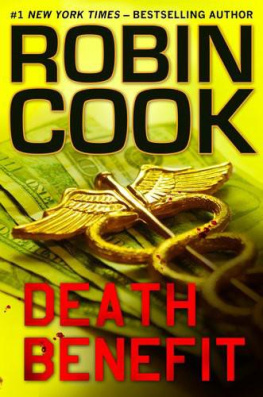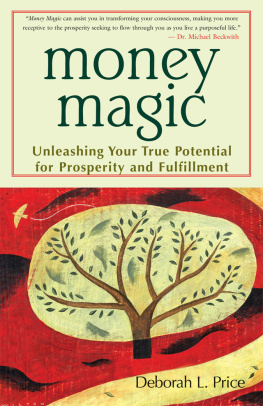
The human egg cell, or oocyte, that was snared by the slight suction exerted through the blunt end of the holding pipette was no different from its approximately five dozen siblings. It was merely the closest to the end of the tiny glass rod when the rod came into the technician's view. The group of oocytes was suspended in a drop of culture fluid under a thin layer of mineral oil beneath the objective of a powerful dissecting microscope. The oil prevented evaporation. It was vitally important that the environment of these living cells stay in an appropriate steady state. Like the others the fixated oocyte appeared healthy with an appropriate granularity of its cytoplasm. Also like the others its chromatin, or DNA, fluoresced under ultraviolet light like miniature fireflies in a pea-soup fog. The only evidence of the cell's earlier rude aspiration from its developing follicle were the ragged remains of its corona radiata of granulosa cells adherent to the comparatively dense envelope called the zona pellucida. All of the oocytes had been yanked from their ovarian nest prematurely and then encouraged to mature in vitro. At that moment they were ready for spermatic penetration, but that was not to be the case. These female gametes were not to be fertilized.
Another pipette entered the visual field. This was a more lethal-appearing instrument, particularly beneath the microscope's strong magnification. Although in reality only twenty-five millionths of a meter in diameter, it looked like a sword with a tip beveled to needlepoint sharpness. Inexorably it closed in on the hapless, immobile gamete and indented the cell's zona pellucida. Then with a practiced tap by the experienced technician on the pipette's controlling micrometer, the end of the pipette was plunged into the cell's interior. Advancing to the fluorescing DNA, a slight suction was applied to the pipette's interior and the DNA disappeared into the glass rod.
Later, after ascertaining that the gamete and its sisters had withstood the enucleation ordeal as well as could be expected, the cell was again immobilized. Another beveled pipette was introduced. This time the penetration was limited to the zona pellucida, sparing the oocyte's cell membrane, and instead of suction being applied, a tiny volume of fluid was introduced into what's known as the perivitelline space. Along with the fluid came a single, comparatively small, spindle-shaped adult cell obtained from a buccal scraping of an adult human's mouth.
The next step involved suspending the gametes with their paired adult epithelial cells in four milliliters of fusion medium and placing them between the electrodes of a fusion chamber. When the gametes were all appropriately aligned, a switch was thrown sending a ninety-volt electrical pulse through the medium for fifteen millionths of a second. The result was the same for all the gametes. The shock caused the membranes between the enucleated gametes and their adult cell partners to dissociate momentarily, fusing the two cells.
Following the fusion process the cells were placed in an activation medium. Under chemical stimulation each gamete that had been ready for fertilization prior to the removal of its DNA now worked magic with its adopted full complement of chromosomes. Following a mysterious molecular mechanism, the adult nuclei forsook their previous epithelial duties and reverted to their embryonic roles. After a short period of time each gamete began to divide to form individual embryos that would soon be ready for implantation. The donor of the adult cells had been cloned. In fact, he'd been cloned approximately sixty times
APRIL 6, 1999
ARE YOU COMFORTABLE?" Dr. Paul Saunders asked his patient, Kristin Overmeyer, who lay on the aged operating table clothed only in a backless hospital johnny. "I guess," Kristin answered, although she was not comfortable at all. Medical environments never failed to evoke a level of anxiety in her that was tolerable but not pleasant, and the present room was particularly disagreeable. It was an ancient operating theater the decor of which was the absolute opposite of the sterile utilitarianism of a modern medical facility. Its walls were surfaced in bile-green, cracked tile with dark splotches presumably from old blood staining the grout. It looked more like a scene in a gothic horror movie set in the nineteenth century than a room currently in use. There were also tiers of observation seats that disappeared up into the gloom beyond the reach of the overhead surgical light. Thankfully the seats were all empty.
" 'I guess' doesn't sound too convincing," Dr. Sheila Donaldson said from the side of the operating table opposite Dr. Saunders. She smiled down at the patient, although the only observable effect was a crinkling at the corners of her eyes. The rest of her face was hidden behind her surgical mask and hood.
"I wish this was over," Kristin managed. At that moment, she wished she hadn't volunteered for the egg donation. The money would provide her with a degree of financial freedom that few of her fellow Harvard students enjoyed, but that seemed less important now. Her only consolation was that she knew she'd soon be asleep; the minor procedure she was about to undergo would be painless. When she'd been offered the choice of general anesthesia or local she chose the former without a moment's hesitation. The last thing she wanted to be was awake while they pushed a foot-long aspiration needle into her belly.
"I trust we are going to be able to get this done today," Paul said sarcastically to Dr. Carl Smith, the anesthesiologist. Paul had a lot to do that day and had scheduled only forty minutes for the upcoming procedure. Between his experience with the operation and his facility with the instruments, he thought he was being generous allotting forty minutes. The only holdup was Carl; Paul couldn't begin until the patient was under, and minutes were inexorably ticking away.
Carl didn't respond. Paul was always in a hurry. Carl concentrated on taping the precordial stethoscope's head onto Kristin's chest. He already had the IV running, the blood pressure cuff positioned, the EKG leads attached, and the pulse oximeter in place. Satisfied with the auscultatory sounds he heard through his earpiece, he reached over and pulled his anesthesia machine closer to Kristin's head. All was ready.
"Okay, Kristin,' Carl said reassuringly. "As I explained to you earlier I'm going to give you a bit of 'milk of amnesia.' Are you ready?"
"Yes," Kristen said. As far as she was concerned, the sooner the better.
"Have a good little sleep," Carl said. "The next time I'll be talking with you will be in the recovery area."
Such was Carl's usual comment to his patient just before beginning anesthesia, and indeed it was the usual course of events. But on this occasion it was not to be. Blithely unaware that disaster was imminent, Carl reached for the IV line where he had the anesthetic agent piggybacked. With practiced ease he gave the patient a predetermined amount based on her weight, but on the low end of the recommended dosage. It was the Wingate Infertility Clinic's policy for outpatient anesthesia to use the least amount appropriate of any particular drug. The goal was to ensure the patient's same-day discharge, since the clinic's inpatient facilities were limited.
As the induction dose of propofol entered Kristin's body, Carl dutifully watched and listened to his monitoring devices. All seemed in order.
Sheila chuckled beneath her mask. "Milk of amnesia" was Carl's humorous sobriquet for the anesthetic agent propofol, which was Dispensed as a white liquid, and the term never failed to tickle her funny bone.
Next page

